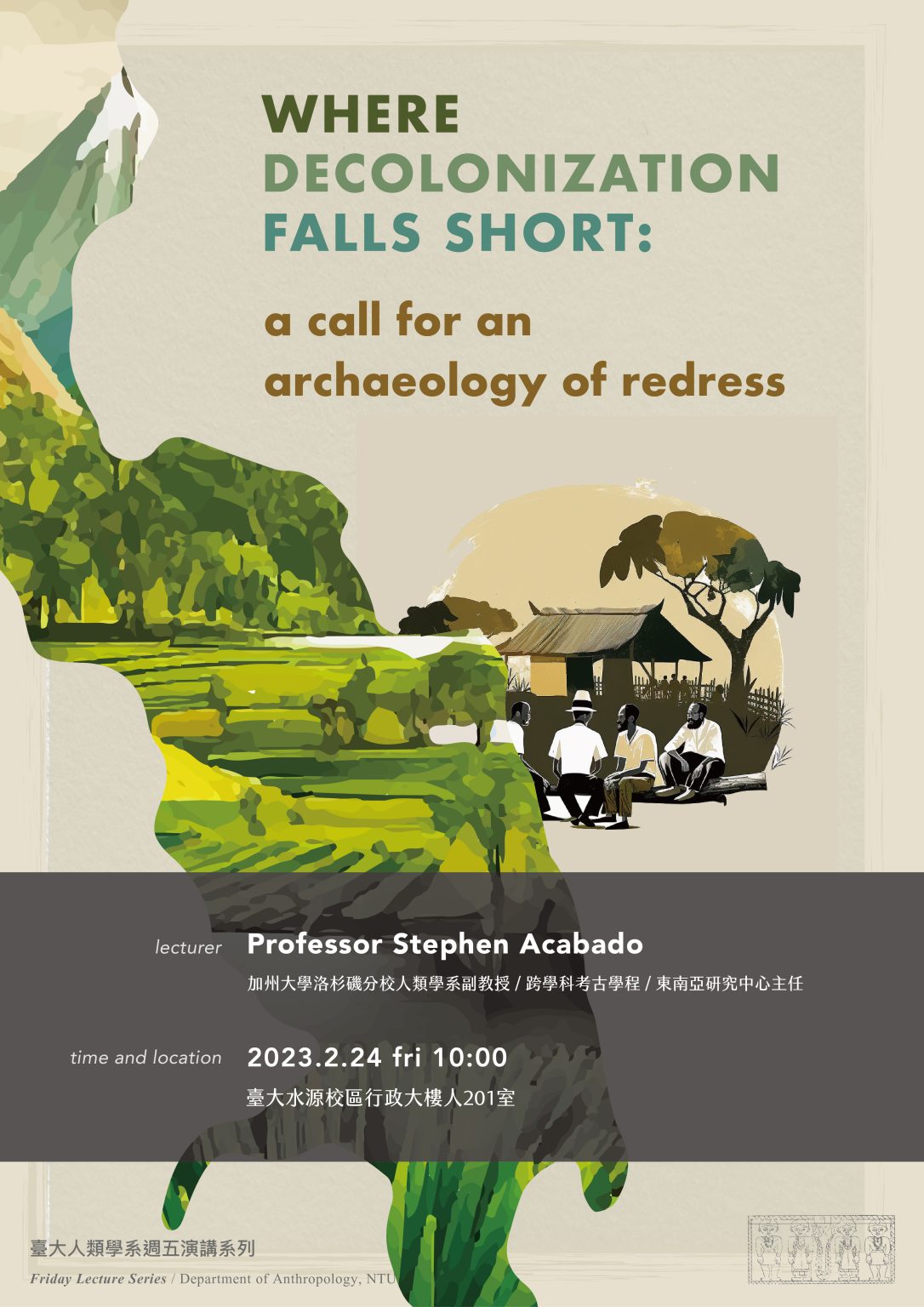
人類學系週五演講系列
| 講 題 | Where decolonization falls short: a call for an archaeology of redress |
| 講 者 | Stephen Acabado(加州大學洛杉磯分校人類學系副教授,跨學科考古學程、東南亞研究中心主任) |
| 時 間 | 2023.02.24 (Fri.) 10:00 |
| 地 點 | 臺大水源校區行政大樓人201室 |
| 演講簡介 | How do scholars approach community-engaged research? Why is there a need to involve community stakeholders in research? What happens when communities engage scholars and invest in the research process? Archaeological practice in Southeast Asia has recently shifted to active engagement with local stakeholders. This is due to the realization that involving stakeholder communities results in meaningful research outcomes. A growing number of investigations are actively seeking the involvement of communities as both contributors and as active and involved research participants. These undertakings humanize our community partners and counter the exclusivity often associated with scholarly authority. In this presentation, I will talk about my collaborations in the Philippines, which provide case studies for meaningful and continuous conversations with community members. I also emphasize the acknowledgement that no one has the monopoly on knowledge creation. However, this approach should be considered the first step in a truly meaningful practice. As archaeologists work on a broad temporal and spatial scales, we can contribute to address and redress historical and social injustices. In this talk, I provide examples were the idea of decolonization falls short by neglecting to grasp the concept of “slow archaeology.” An engaged archaeology, with an emphasis on redress, will change the way we practice our profession, a practice that brings archaeology to communities. It makes our practice a continuous process and not as a one-off field research event. |
Members of the university community and interested friends are welcome to attend. No registration is needed.